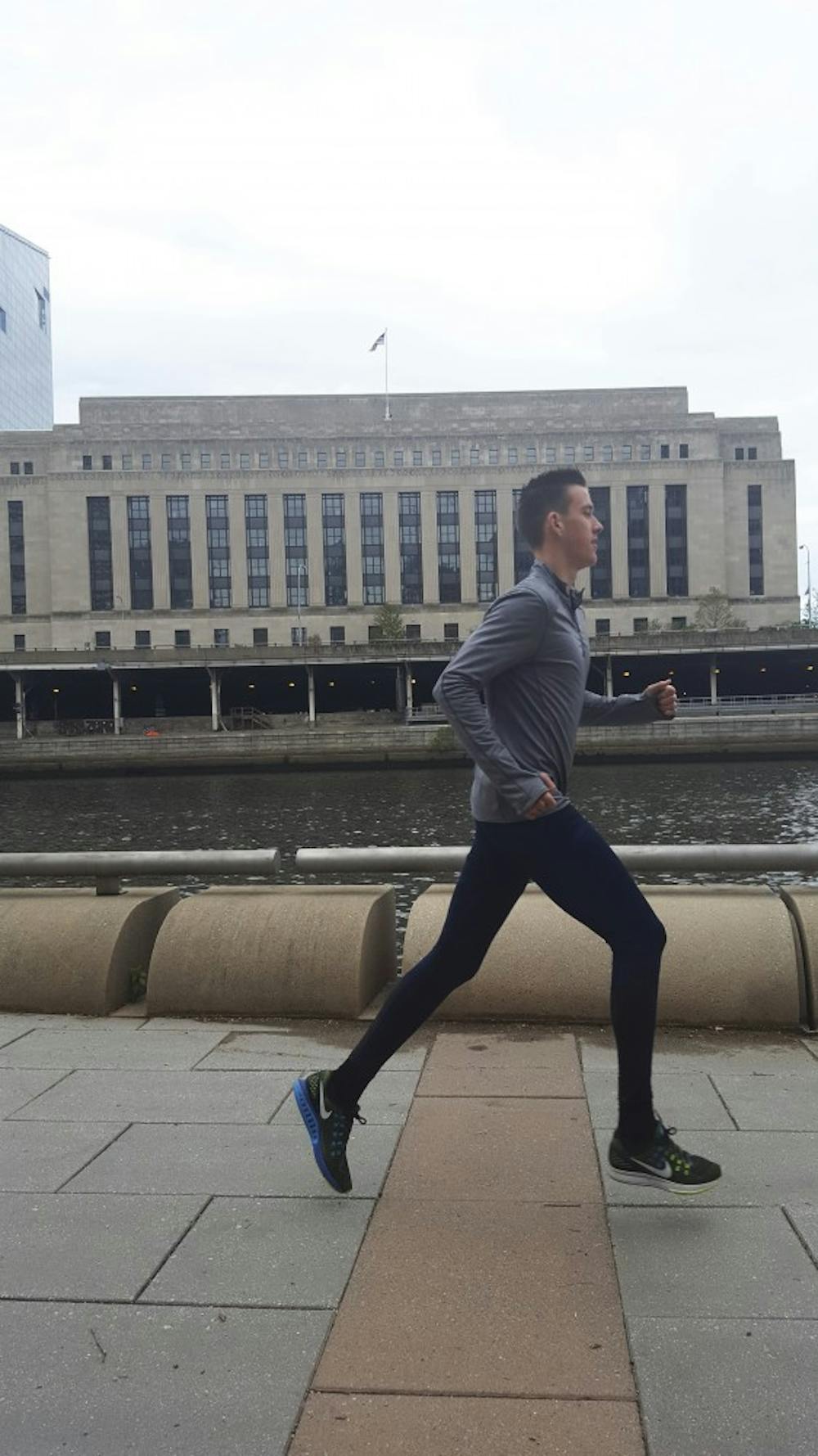
Despite the intense amount of preparation that goes into running a marathon, many Penn students derive great joy out of the challenge. | Courtesy of John Forde
Every morning at 6:45 a.m., while most students are dead asleep, Engineering sophomore Johnny Forde is preparing for his daily run before class. On Nov. 20, he and other Penn students will be participating in the Philadelphia Marathon.
Between training, schoolwork, nutrition and friends, these students have a lot on their plates. According to Forde and others, however, the experience is as rewarding as it is challenging.
Forde’s motivation for running the marathon is simple: to lead a healthier lifestyle. Both he and College senior Charlotte Rodgers share this goal in training for their first marathon. Rodgers, like Forde, began running to improve her overall fitness and health when she was a senior in high school. She had completed three half-marathons before deciding to train for the Philadelphia marathon.
“In the back of my mind I always wanted to check [running a full-marathon] off the bucket-list,” Rodgers said.
Forde and Rodgers both emphasized the impact training has had on their overall nutrition. Rodgers dispelled the idea that regular exercise allows people to eat “whatever they want.” She discussed how crucial it is to be conscious of what she eats, especially the day before a long run.
“I stopped viewing food as just something I eat because it’s tasty, and I view it as what is actually going to get me through a run,” Rodgers said. She cooks most of her own food to keep more careful track of what exactly she is eating. Marathon training has pushed her to become more conscious about things like macro-nutrients and carbohydrate-intake.
As a bioengineering major, Forde admits that training every day is difficult with his homework and the demands of his major. He believes that daily running, however, boosts his energy.
“I don’t need to drink coffee or Red Bull or anything. I think exercise really is the best natural source of energy,” Forde said.
Between training and attending class, Forde noted the importance of maximizing productivity during breaks.
“Doing little bits of homework here and there really adds up and reduces stress along the way,” Forde said. He added that by sticking to a schedule and remaining focused, his diligent work usually leads to free time later.
Sleep is another important element to marathon training. Each receive at least seven hours of sleep a night on average. Rodgers said running regularly allows her to sleep more soundly at night. On the downside, however, she said that sometimes her need for rest inhibits her social life.
“Come Saturday night, all my friends want to go out at eleven o’clock, and I think ‘All I can do right now is sleep,’” Rodgers said.
Unlike Rodgers who sometimes views training as an impediment to her social life, Josh Franklin, a fourth-year graduate student running the Philadelphia Marathon for the third time, feels his social life has improved with marathon-running.
“I have met a lot of cool people through running, who I probably wouldn’t be close with otherwise ... You can run with somebody and get to know them really well,” Franklin said. Forde also believes running has expanded his social circle. Like Franklin, he is a part of Penn Running Club. He attends club cross country meets and enjoys competing and engaging with others interested in running.
Although Franklin and Forde emphasize the social aspects of running, all three agree that their training is a solitary endeavor. They each run alone, engaging in their own individualized training plans.
He, as well as Forde and Rodgers, recommend Penn Running Club and other running networks as a way to motivate yourself and meet others with similar interests.
“Socializing makes anything a lot more fun. When you have people to hold you accountable ... it’s good,” Rodgers said.
Franklin, however, advises having individual goals when training as well. He believes one of the most rewarding parts of training is the feeling of personal achievement.
“One of the great parts of [training for a marathon] is being present to your own experience and what the challenge of it means to you,” he said.
All three agree that the biggest challenge in training for a marathon is the psychological factor. They said motivation and determination are crucial to obtaining their end-goal — completing the marathon.
“A big part of the psychological battle is dealing with how you wish you could run farther, you could run faster, you could feel better when you’re running,” Franklin said. What ultimately motivates each individual, he added, is their own personal goals.
Despite the challenges that come with training for a marathon, Forde, Rodgers and Franklin reiterated how rewarding it is. Each of them expressed pride in their accomplishments and the positive effects this goal has had on their lives.
“I could achieve many things with setting this marathon as my goal because it helps you get into an overall healthy lifestyle: requiring a strict diet, encouraging good sleep, and basically helping to organize your life... It changes your lifestyle for the better,” Forde said.
The Daily Pennsylvanian is an independent, student-run newspaper. Please consider making a donation to support the coverage that shapes the University. Your generosity ensures a future of strong journalism at Penn.
DonatePlease note All comments are eligible for publication in The Daily Pennsylvanian.







